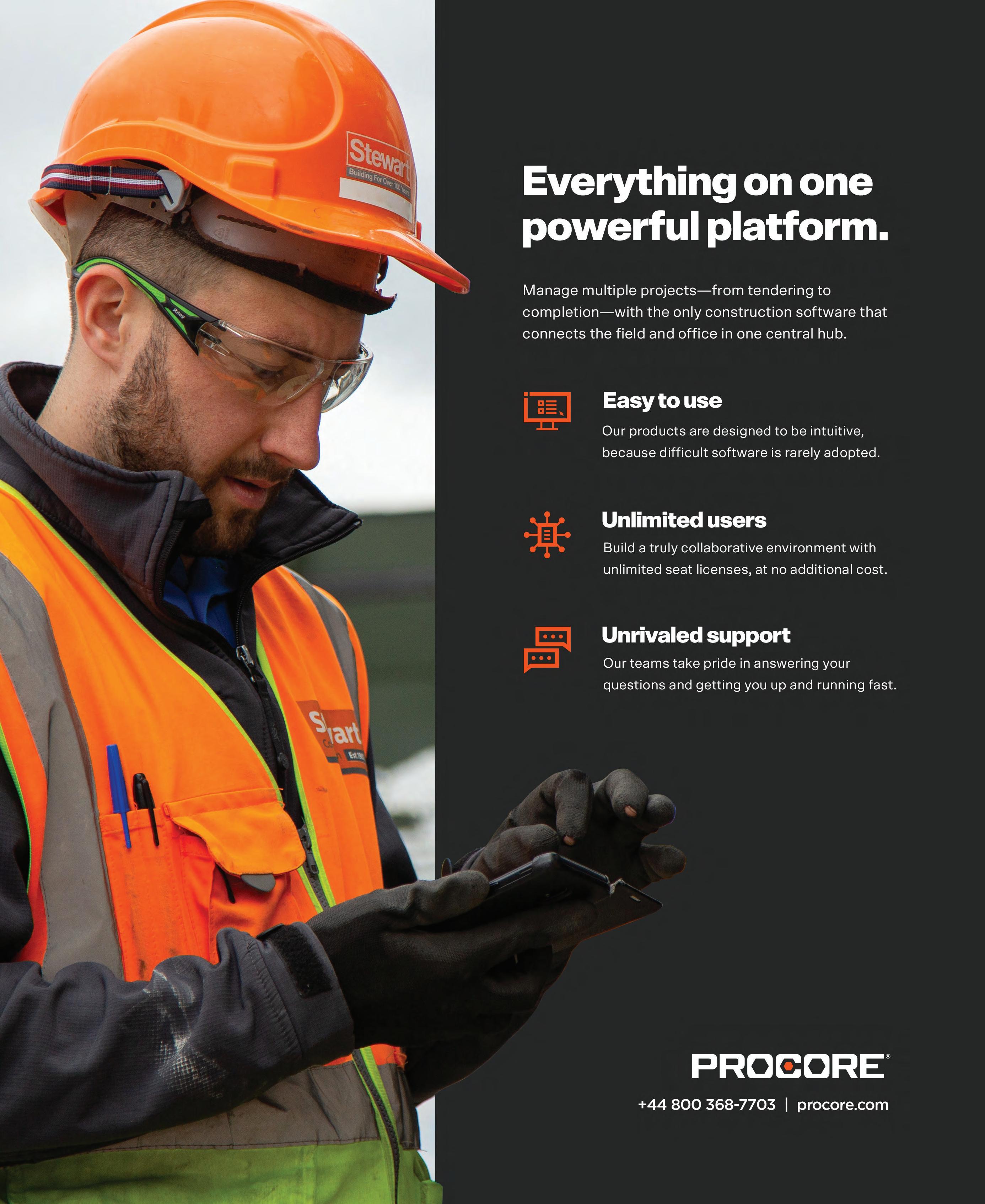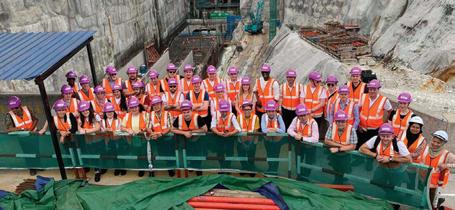
4 minute read
Training & Recruitment E nvironmental challenge Working in offshore renewables
Training & Recruitment
Job spotlight Bruce Harrison Director, NEX is Project Services
Advertisement
Offsh ore drill
Bruce ha rris on explains how his work in the offshore renewables sector differs from construction on land
Tell us about a typical day in your job. My day generally follows the schedule of the offshore work parties – and even shifts covering 24-hour operations at times – to control construction activity in the offshore site.
Generally speaking I work Monday to Friday and weekends as and when required. However, currently I am working two weeks offshore and two weeks onshore. The time onshore could either be working days or non-working days, depending on what the project and my business requires.
An essential element of my role is to manage construction progress and report this to our stakeholders, manage contractor activities and control simultaneous operations. Also to review their safe system of works and support contractors to bring these in line with the construction phase plan, as well as issuing and controlling the principal contractor’s permitto-work system and ensuring the safety of the site and personnel offshore at all times.
Do you need specific skills/training? Very similar to standard onshore structural construction management – a degree in engineering, project or construction management, and competence managing programmes of works, contract management. H o w e v e r, w o r k i n g i n a n o f f s h o re environment, there are a few additions. Other qualifications include: Working and Rescue from Height, Confined Space Rescue, Advanced First Aid, Sea Survival – and even potentially Helicopter Underwater Escape Training.
What are the most challenging aspects? The unpredictability of the environment in which we work. The sea and weather offshore can have far-reaching impact on the project progress, costs and the speed at which the conditions may change, requiring us to be far more safety-conscious and responsive.
What is the most rewarding part of your job? I believe people working in the offshore renewables industry are similarly outgoing and passionate people and, as much of a cliche as this sounds, I love the fact I am making a difference in climate change, sustainability and the control of CO 2 emissions. ●

Mind your language
CITB’s Welsh language policy advisor Gwenno Griffith on developing Welsh skills in the workplace
The Welsh government has a highly ambitious plan: its Cymraeg 2050 strategy aims to ensure that the number of Welsh speakers rises from 562,000 – its current figure – to one million, by 2050.
CITB supports the government’s bold plan and fully recognises the importance of promoting Welsh in the workplace. For example, CITB’s Welsh Language Scheme, a result of the Welsh Language Act 1993 and Welsh Language Measure 2011, states that “organisations should not treat the Welsh language less favourably than the English”. It sets out how CITB is expected to use Welsh in the workplace and with the public.
I joined CITB in August 2019. Encouraging new Welsh speakers is an important part of my work at CITB Wales. In January I was delighted to offer CITB Wales staff across the country the chance to learn Welsh via taster sessions, online or at a residential course.
Take-up, I’m pleased to say, has been very good – staff’s enthusiasm to learn the language has been encouraging.
Providing opportunities for those who can speak Welsh is also an important part of CITB’s work. That’s because the ability to complete qualifications bilingually can be an essential element for some Welsh speakers.
A good role model is award-winning bricklayer Ifan Williams, a bilingual apprenticeship ambassador for CITB Wales. He completed a bilingual Foundation Apprenticeship and Apprenticeship in Brickwork with the CITB through Coleg Meirion Dwyfor in Dolgellau, north Wales.
Williams used his first language of Welsh and written English to complete the qualifications and was named CITB Apprentice of the Year for Wales in 2018. His story is an example of the value of offering Welsh-language apprenticeships.
I believe promoting the Welsh language has numerous benefits for staff and our clients.
It helps CITB put the customer first, promotes inclusivity and ensures CITB supports the culture of Wales by helping the Welsh government achieve its ambitious 2050 vision. Gwenno Griffith is Welsh language policy advisor with CITB.

O u r h a r d - w o r k i n g n a t i o n n e v e r s t o p s , a n d n e i t h e r d o e s t h e N e w Tr a n s i t . O f f e r i n g u p t o 1 8 5 P S a n d a h e f t y p a y l o a d o f u p t o 2.2 tonnes * o n s e l e c t e d m o d e l s , i t ’ s p a c k e d f u l l o f d r i v e r a s s i s t a n c e technology to help you work smarter.











